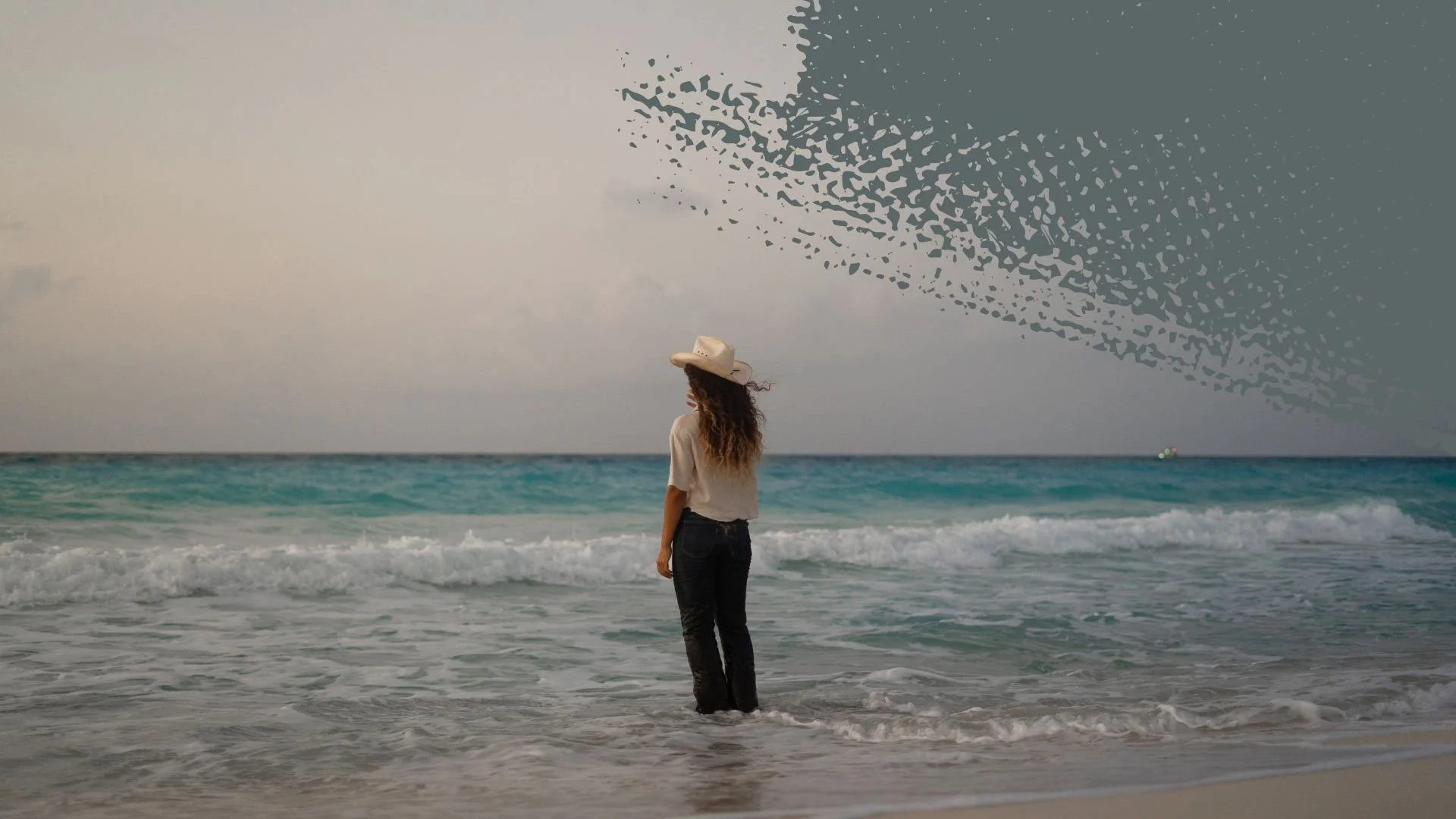Finding Joy Again: A Reflection on the Ocean, Ourselves, and the Fight for What Matters
Before the Hope, the Heart
This week is UN Ocean Conference Week. Before diving into hopeful advancements in ocean preservation — and the very real setbacks — I want to pause. I want to reflect on the role the ocean plays in our lives, because to build real progress, we have to understand the contrast. The love and the loss. The wonder and the wounds.
When I think of my happy place, I see and feel the ocean. Long walks by the shore, my feet in the water, waves coming and going. I love that ebb and flow. It’s life in its purest form.
I love trees — deeply — but the ocean is different. It holds something special - ancient and expansive. It's life-giving. It's a horizon without end. It invites breath. It offers space for thoughts, or sometimes, dissolves`them completely, leaving only the rhythm of waves behind. It washes away what no longer serves. It calms. It energises. It’s like an adaptogen for the soul.
If I ever need a true reset in life, I know I can only find it by the sea.
Water: The Pulse of Life
Over 70% of our planet is made of water. Roughly 60% of our bodies too. It echoes. We are made of the same substance that surrounds and sustains us.
I was born under a water sign, but that deep pull toward the ocean is something we all feel. Many of the people I interviewed on the Shades of Life Podcast — whether they are climate leaders, scientists, explorers or artists — mentioned the ocean as something sacred, grounding, or transformative.
It’s not just emotional. It’s biological. The ocean produces over 50% of the oxygen we breathe. It regulates the climate. It feeds over 3 billion people. It supports entire economies. It’s the beating blue heart of our planet.
And yet, despite its importance, we mistreat it daily — knowingly and unknowingly.
What We Created Is Now Uncreating Us
I admire human ingenuity. I always have. But we have to admit that many of the systems we've developed — and many of the inventions we’ve prided ourselves on — are trashing the very element that sustains us.
The fossil fuel era brought rapid development, but it’s also driving ocean acidification, warming, sea level rise, and plastic pollution. Our addiction to plastic has led to a terrifying projection: by 2050, there could be more plastic in the ocean than fish.
It seems insane to me that we continue to eat scallops while ignoring the devastation caused by bottom trawling, which bulldozes entire marine ecosystems. Is it worth it? Of course not, yet, we continue with it.
And now, our hunger for tech and digital tools is placing deadly pressure on the deep sea — one of Earth’s last unexplored frontiers. The race for minerals is putting ocean floors at risk, all so we can charge the very devices we can’t seem to put down. It’s like we can’t seem to get out of a linear thinking and doing, and we’re unable to start living in a circular way that respects life and is equally give and take.
The Cost of Convenience
Who is going to stop deep-sea mining when the pressure for economic growth and “green” tech demands rare earth metals? Who will challenge the systems that treat the ocean as a resource dump when our lives are increasingly disconnected from nature?
Our population keeps growing. So do our fabricated needs.
Try holding your breath while you count your money. It’s a stark image, but it says everything.
Who will care about the stock market, crypto, or even smartphones if there’s no life left in the ocean?
Our Greatest Challenge: Ourselves
I often go to the ocean to find my breath again — to find my joy. But I sometimes wonder: what if the ocean life is gone? What will be left for us to return to?
The truth is, all of our problems point back to us.
The greatest challenge of our time isn’t climate change. It’s not pollution. It’s us — our disconnection, our disempowerment, our fragmentation. We’ve let things slide because, collectively, we’re not fully grounded. Not whole. Not wise.
And when world leaders make headlines while pushing policies that deepen our crises — when they uphold broken systems under the banner of growth — they are not leaders. They are stewards of decline.
The Turning Tide
But something is changing.
More people are waking up. They are realising that systemic change begins with personal agency. It begins with acting from a place of wisdom, wholeness, and truth.
I believe it’s the biggest challenge of our generation — and maybe of any lifetime: to remember who we are, and to act like it.
So, I’ll go back to the ocean. To breathe again. To feel that joy. And I’ll let that energy fuel me to rise a little more, to stand in who I am, and to fight for what matters.
Because our future isn’t written yet. The potential is still there — in you, in me, in all of us.
Let the waves remind you: it’s never too late to begin again.
